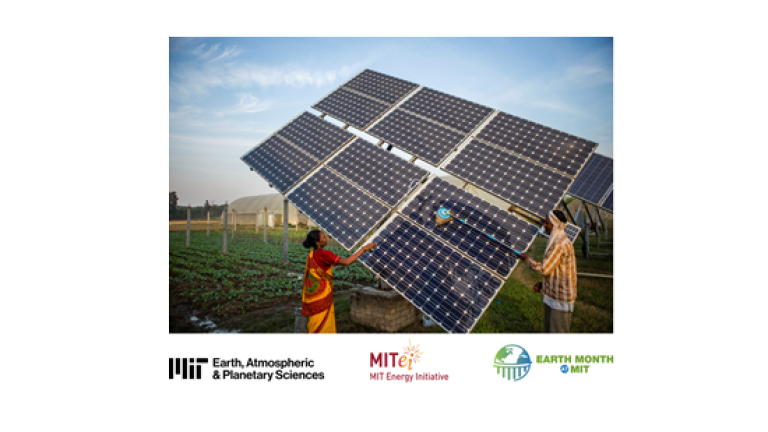
Monday, April 22
12:30 pm-1:30 pm ET
Dixie Lee Bryant Lecture Hall, Room 54-100
Register
This event is open to the MIT community. Please register with your MIT email address.
Co-hosted by the MIT Energy Initiative and MIT Department of Earth, Atmospheric,
& Planetary Sciences
Sponsored by the Climate Nucleus
Last year shattered global heat records. The world witnessed the effects of rising temperatures in the form of devastating wildfires, severe flooding, extreme heatwaves, and more. Poor countries and communities who have contributed the least to causing the climate crisis are bearing the brunt of its accelerating impacts. But, it’s not too late to correct course, and progress on decarbonizing energy is paramount to securing a 1.5C future. Join Ani Dasgupta, the president and CEO of World Resources Institute, for a discussion on how the just energy transition in key countries can lead to a global tipping point for a more resilient, equitable world.
Refreshments to follow, Building 55 Atrium
About the speaker
Ani Dasgupta is president and CEO of the World Resources Institute (WRI), where he works to advance the institute’s global vision to improve the lives of all people and ensure that nature can thrive. He took the helm at WRI after seven years as global director of WRI’s Ross Center for Sustainable Cities, which is dedicated to shaping a future where cities work better for all people.
Under his leadership, WRI set a bold new five-year strategy—Getting the Transition Right for People, Nature, and Climate 2023-2027—which sets the course for a new era of economic opportunity to meet people’s essential needs, restore nature, and rapidly lower emissions while building resilient communities.
He developed his expertise in positions ranging from nonprofits in India to the World Bank. A widely recognized leader in sustainable cities, poverty alleviation, and building cultures of inclusion, Dasgupta has built strong cross-sector, multi-national coalitions with governments, corporations, and civil society.






